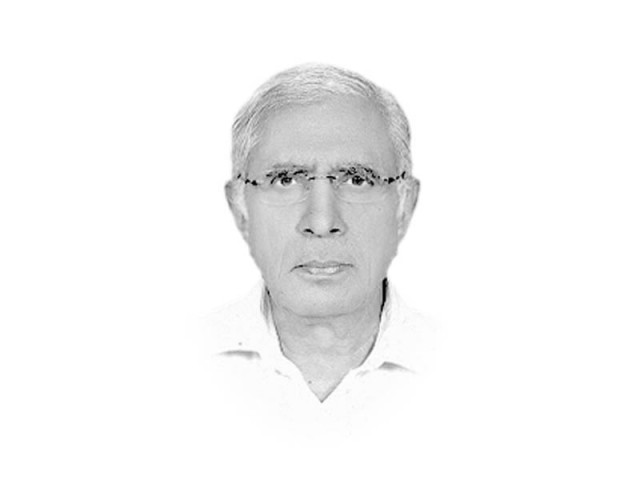The Muttahida
Most of Sindh stops breathing after every such strike call as the air fills with gunfire at the right time and places.

The writer is Executive Editor of The Express Tribune
This column, in fact, is all about those who have been electing the Party founded by Altaf Bhai, in every election that this Party has fought — be it local, provincial or national — since the late 1980s, as the sole representative of urban Sindh. One would like to assume, in the absence of any evidence to the contrary, that the Muttahida supporters vote for the MQM so overwhelmingly because they believe in what the Party stands for. If so, then it is safe to assume that these voters are socially more aware, more enlightened, more liberal and more tolerant than the voters in other parts of Pakistan as the Muttahida’s performance in any of the elections it has contested outside urban Sindh has never been as noteworthy. Also, the Muttahida’s electoral victories in urban Sindh perhaps, indicate that the proportion of middle classes in the population in its constituency is more than what it is in other parts of Pakistan. And that by the same token, these enlightened voters would also be averse to limiting their political space to the ‘mohajir’ constituency or that they would willingly confine the ownership of the national language — Urdu — to this disappearing species because in the first place, those who came from India after Partition, crossing rivers of blood to settle in Pakistan are not ‘mohajirs’ as the term actually applies to those who want to go back to their ‘homeland’, like the Afghan mohajirs do and secondly, their children born in Pakistan, whether one accepts them as such or not, are sons and daughters of the soil and not settlers like their parents or grandparents.
But the kind of bloodletting that has been going on in urban Sindh now for nearly three decades flies into the face of these assumptions. And even if one concedes the narrow-minded notion of limited ownership of Urdu, then the presence of politically powerful enough Dr Ishratul Ibad in the provincial governor’s house for a period far longer (and still counting) than any of his predecessors had the privilege to occupy it and the recent election of President Mamnoon Hussain to the nation’s highest office (shortage of space does not permit quoting here many more such examples from past and present) negate the claim of discrimination as a rule against the ‘Urdu-speaking’ population of urban Sindh.
In recent years, the number of electoral victories that the party’s voters have conferred on the Muttahida is more than matched by the number of successful strike calls that urban Sindh has suffered. Most of Sindh stops breathing after every such call as the air is punctuated with gunfire at the right time and at strategic locations. Successful strikes, therefore, seem more gunfire driven than voluntary acts. If so, then one is obliged to assume that most of Muttahida voters play no role other than that of passive spectators in the ongoing anarchy. It is perhaps, a handful of miscreants possessing enormous firepower, who are keeping urban Sindh in an eternal grip of bloody chaos. Who are these miscreants? That is perhaps, what is called the 64,000-dollar question. Rangers and the Sindh police, backed by seemingly neutral federal and provincial governments, are currently trying to find an answer to this question. One does not expect the law-enforcement agencies to come up with a political answer but an answer that would stand the test of any impartial inquiry and independent judicial review. On their part, one would also expect the voters of Muttahida to extend, in their own interest, all the help needed by the agencies to find the right answer.
Published in The Express Tribune, October 9th, 2013.
Like Opinion & Editorial on Facebook, follow @ETOpEd on Twitter to receive all updates on all our daily pieces.
















COMMENTS
Comments are moderated and generally will be posted if they are on-topic and not abusive.
For more information, please see our Comments FAQ